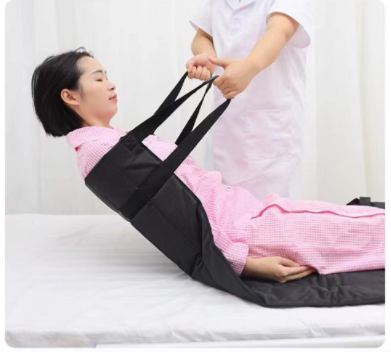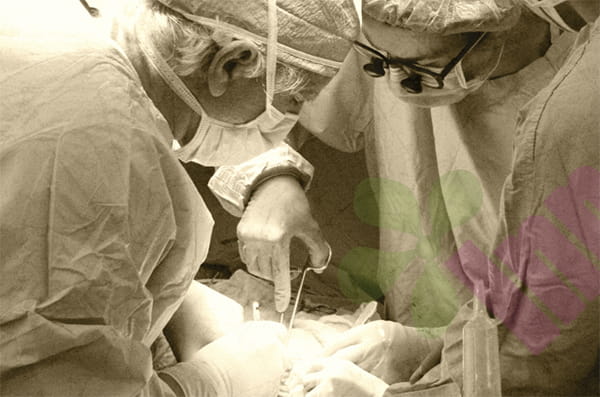When a patient lies in bed for long periods of time, especially in the absence of gravity, the skin and tissues are vulnerable to pressure and friction damage, known as pressure sores. Pressure ulcers are a common care problem that can seriously impact a patient's quality of life and health. Here are some ways to help bedridden patients prevent pressure sores.
If left untreated, the following consequences may occur:
Infection: The damaged skin and tissues of bedsores provide a good environment for the growth of bacteria and fungi. If left untreated, bacteria and fungi can infect deeper tissues, causing the infection to spread and cause serious infectious diseases.
Sepsis: Infected bedsores may cause sepsis, a serious infectious disease that can lead to death.
Osteomyelitis: If the bed sore infection involves the bone, it may lead to the occurrence of osteomyelitis. Osteomyelitis is a serious condition that may require surgery.
Organ failure: long-term bedridden patients are prone to organ failure if they are not properly cared for. If left untreated, pressure sores can lead to the failure of other organs.
Here's how to prevent the disease:
For patients who are bedridden for a long time, it is very important to prevent and treat bedsores in time. When a patient develops a bed sore, the medical staff should be notified in time for treatment, and appropriate measures should be taken to reduce the pressure on the skin and tissues to avoid further expansion of the bed sore. At the same time, patients who have been bedridden for a long time need to turn over regularly, clean their skin, and keep the sheets clean and dry to reduce the occurrence of bedsores.
Keep the skin clean and dry:When a patient is in bed, the skin tends to sweat and secrete oils, which promote the growth of bacteria. Therefore, it is very important to clean and dry the skin regularly. When the patient's skin becomes wet or perspires, gently dry it with paper towels or towels.
Give enough support. Patients who lie in bed for a long time are prone to atrophy of their muscles and joints. Therefore, when the patient is moving or turning over in bed, adequate support should be given with support pads or pillows to reduce the pressure on the skin.
A decompression functional dressing can be used:For example, silicone gel foam dressings are used, which can reduce the pressure on the skin and avoid secondary damage to the skin when changing the dressing. The benefits of silicone gel foam dressings for pressure ulcers include: Silicone gel foam dressings absorb the discomfort of pressure on the skin and reduce pain. It also keeps the skin moisturized and helps promote wound healing. And has strong air permeability, which helps reduce the risk of skin infection.
Silicone gel foam dressings are easy to clean, keep bacteria from growing and help keep your skin clean and healthy.
Keep the sheets clean and dry:The patient's skin rubs against the sheets frequently, so keep the sheets clean and dry. When the sheets are damp or stained, they should be replaced in time.
Turn over regularly. Patients who lie in bed for a long time need to turn over regularly. Generally speaking, turning over every hour can effectively prevent the occurrence of pressure sores. When turning over, pay attention to the patient's spine and joints to avoid sprains and injuries.
Give adequate nutrition:Malnourished patients are prone to skin damage, so provide adequate nutrition to the patient. Adding proteins, vitamins, and minerals to patients' diets can improve their skin's resistance.
Exercise the patient's muscles. Patients who lie in bed for a long time are prone to muscle atrophy. Therefore, it is important to train the patient's muscles to increase their blood circulation and muscle tone to prevent the occurrence of pressure ulcers.
Use this shifter to periodically turn over to assess the patient's skin:While patients are in bed, it is important to regularly assess and document their skin. When the patient's skin is found to be red, swollen, painful, ulcerated, or damaged, the medical staff should be notified in time for treatment.
In summary, helping bedridden patients prevent pressure ulcers requires careful care and sound precautions.
For more information on Innomed® Silicone Foam Dressing, refer to the previous articles. If you have customized needs, you are welcome to contact us; we will serve you wholeheartedly. At Longterm Medical, we transform this data by innovating and developing products that make life easier for those who need loving care.
Editor: kiki Jia
Date: April 12, 2023

 English
English عربى
عربى Español
Español русский
русский 中文简体
中文简体








